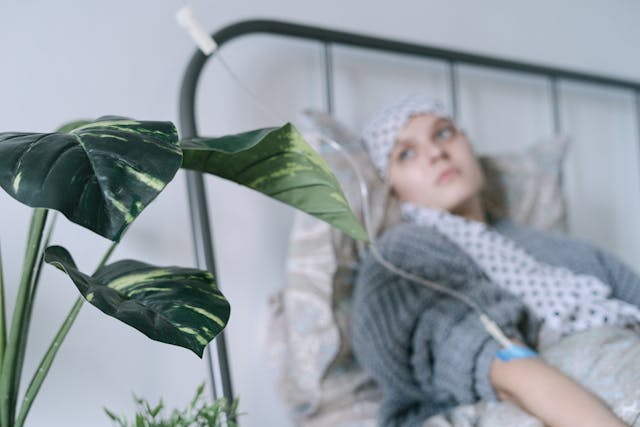When people are going through chemotherapy or radiation therapy, the road to recovery can often feel overwhelming. The treatments that fight against cancer are powerful, but they usually come with side effects that impact someone’s physical and emotional state. Managing these side effects is a completely different conversation. It’s important to manage them as the side effects are essential for maintaining a better quality of life throughout treatment. One promising approach to this is integrated oncology, which is a mixture of the traditional type of cancer treatment with supportive therapies that help patients navigate the journey.
Understanding Side Effects
Chemotherapy and radiation target cancer cells, but in the process, they also can affect healthy cells. This often leads to common side effects, i.e:
- Nausea and vomiting
- Fatigue
- Hair loss
- Weakened immune system
- Emotional stress
Side effects like these can be challenging, but they are manageable, provided the right strategies and support are in place.
A Holistic Approach To Care
A holistic approach addresses not just the physical symptoms but also emotional ones. The emotional and psychological parts of cancer treatment are just as important as the physical. This is where integrated oncology comes in, blending conventional medicine with complementary therapies like nutrition counselling with physical activity and mental health care. This approach impacts everything because by treating the whole person and not just the disease, patients can experience improved outcomes.
Nutrition & Hydration
Good nutrition is essential during cancer treatment. Small and frequent meals can help combat nausea, while foods that are rich in protein and calories boost energy levels. The incorporation of ginger and peppermint into your daily diet can also help to reduce your level of queasiness. Staying hydrated is just as important as supporting your body’s natural detox processes.
Opt for working with a nutritionist who specialises in this area so that they can help you by tailoring a plan to your unique needs, ensuring that your body receives the nutrients it needs to heal.
Staying Active
Fatigue is a big side effect of cancer treatment, but staying active can always help. Light exercises like yoga, walking, or stretching can improve circulation, boost your mood, and increase your energy levels. It’s important to listen to what your body tells you and to pace yourself. If you’re willing to invest time, there are teams out there that often include physical therapists who can recommend safe and effective exercises to manage fatigue without reaching a point of overexertion.
Coping With Stress
As previously mentioned, cancer doesn’t just affect the body, but it also has a stronghold on the mind. Cancer patients are often hit with feelings of anxiety, fear or depression. All of these things are normal, but they shouldn’t be ignored. Practices like mindfulness, meditation and counselling can make massive differences. Support groups are also available to connect you with people who understand exactly what you’re going through at that particular point in time.
Mental health care is a massive component of integrated oncology, ensuring that patients receive comprehensive support for their emotional well-being.
Complementary Therapies
On top of traditional treatments, complementary therapies like acupuncture, massages and aromatherapy can help with managing side effects such as pain, stress and nausea. However, these therapies are designed to complement, but not fully replace, conventional medical treatment.
Support Systems
Not one person should face cancer by themselves. A strong support system of friends, family, and caregivers can make all the difference in somebody’s journey. Don’t hesitate to communicate your needs or ask for help with everyday tasks, regardless of how small they are. Sometimes, you’ll find that just having someone to listen to you can lighten your emotional burden.
Putting It Together
Reducing the side effects of chemotherapy and radiation is about more than just medications. It’s about caring for yourself. The help of integrated oncology allows patients to benefit from the culmination of conventional treatments and supportive therapies that work together to promote healing.
Make it your mission to remember that this is your journey, so prioritising self-care is an essential part of the process. Small, manageable steps make all the difference while you focus on what happens most: your recovery and your health.
